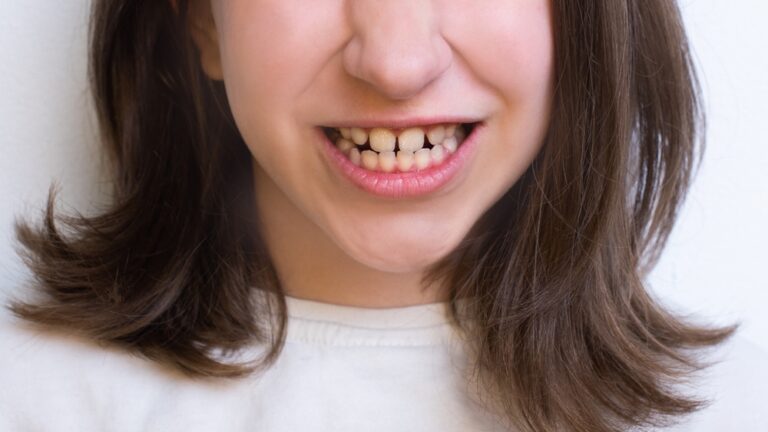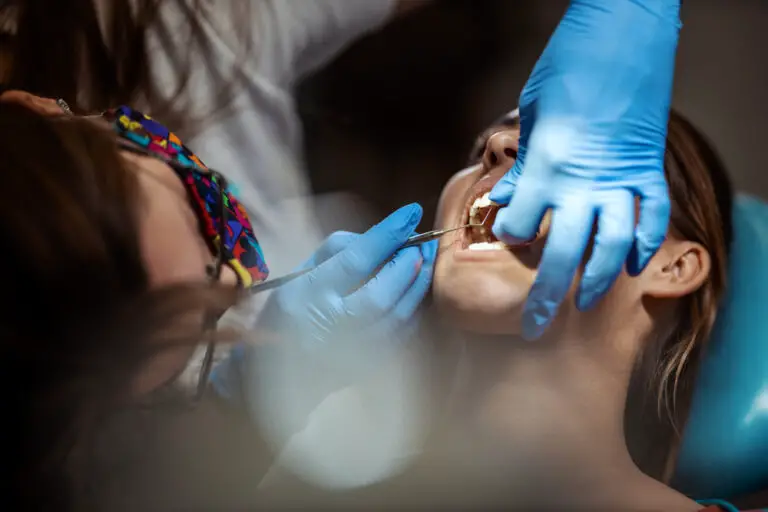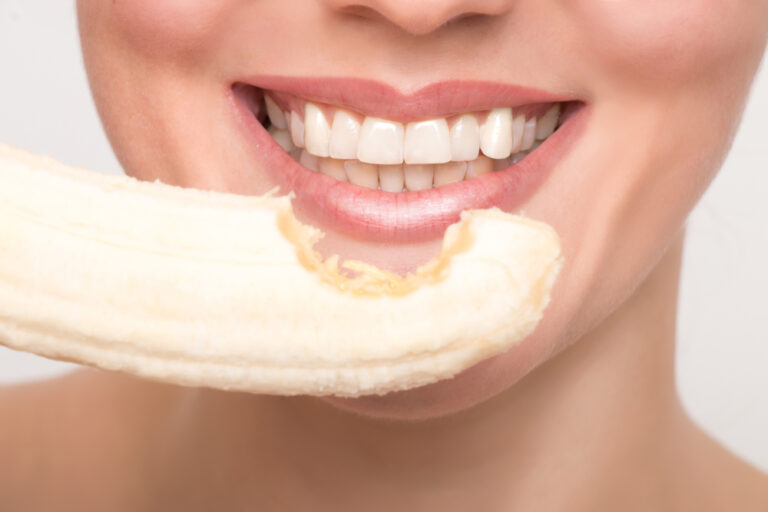Experiencing tooth and ear pain at the same time can be a perplexing and concerning issue. If you’ve ever had this happen to you, you might be wondering if there’s a connection between the two. The answer is yes, tooth and ear pain can be on the same side and there are logical explanations for these twinned troubles.
One of the main reasons for tooth and ear pain on the same side is temporomandibular disorders (TMD). When you have TMD, the muscles and joints in your jaw become inflamed, and this can cause pain in your teeth and ears. Other causes of tooth and ear pain on the same side include dental issues like cavities, gum disease, and impacted teeth, as well as ear infections and sinus problems.
If you’re experiencing tooth and ear pain on the same side, it’s important to see a dentist or doctor as soon as possible. They can help you determine the cause of your pain and provide you with the appropriate treatment. Ignoring the issue can lead to more severe problems down the line, so it’s best to address the issue sooner rather than later.
Understanding Tooth and Ear Pain
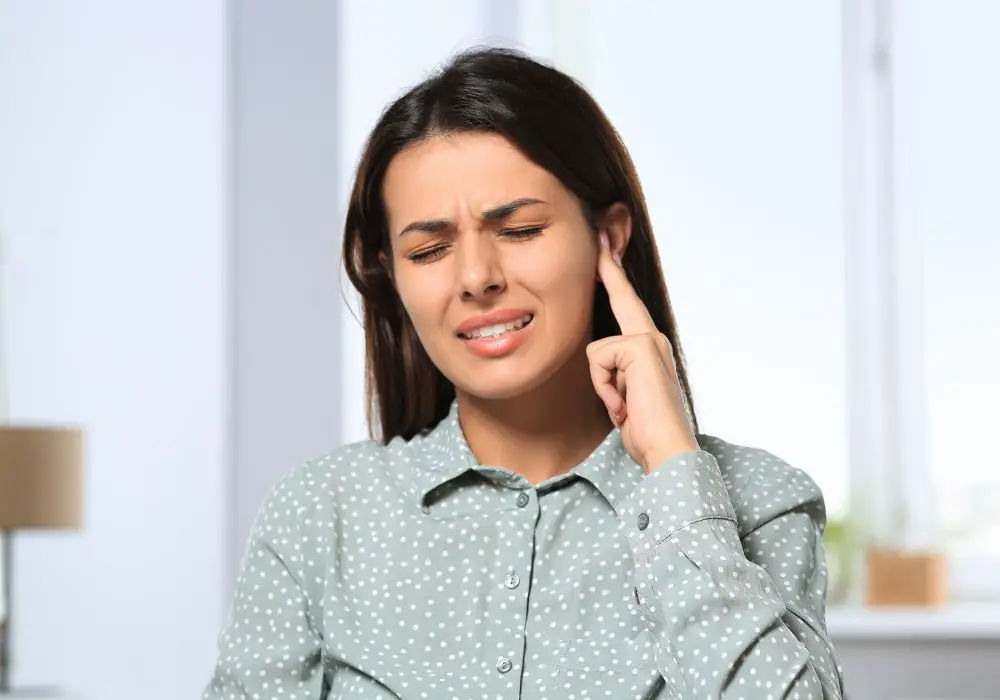
If you have ever experienced tooth and ear pain on the same side of your head, you know how uncomfortable it can be. Tooth pain is often sharp and throbbing, while ear pain can be dull and achy. However, there are logical explanations for these twinned troubles. Understanding the causes of tooth and ear pain can help you find relief and prevent further discomfort.
Causes of Tooth Pain
Tooth pain can be caused by a variety of factors, including:
- Tooth decay
- Gum disease
- Tooth abscess
- Cracked or chipped tooth
- Impacted wisdom tooth
Tooth pain can also be a side effect of dental procedures such as root canals or fillings. In some cases, tooth pain can radiate to other parts of the head, including the ear.
Causes of Ear Pain
Ear pain can also be caused by a variety of factors, including:
- Ear infection
- Sinus infection
- Temporomandibular joint (TMJ) disorder
- Eustachian tube dysfunction
- Barotrauma (pressure changes in the ear)
In some cases, ear pain can be a referred pain from other parts of the head, including the teeth.
When tooth and ear pain strike the same side of your head, it can be perplexing and concerning. However, understanding the causes of tooth and ear pain can help you find relief and prevent further discomfort. If you are experiencing tooth and ear pain, it is important to see a dentist or doctor to determine the underlying cause and receive appropriate treatment.
Correlation Between Tooth and Ear Pain
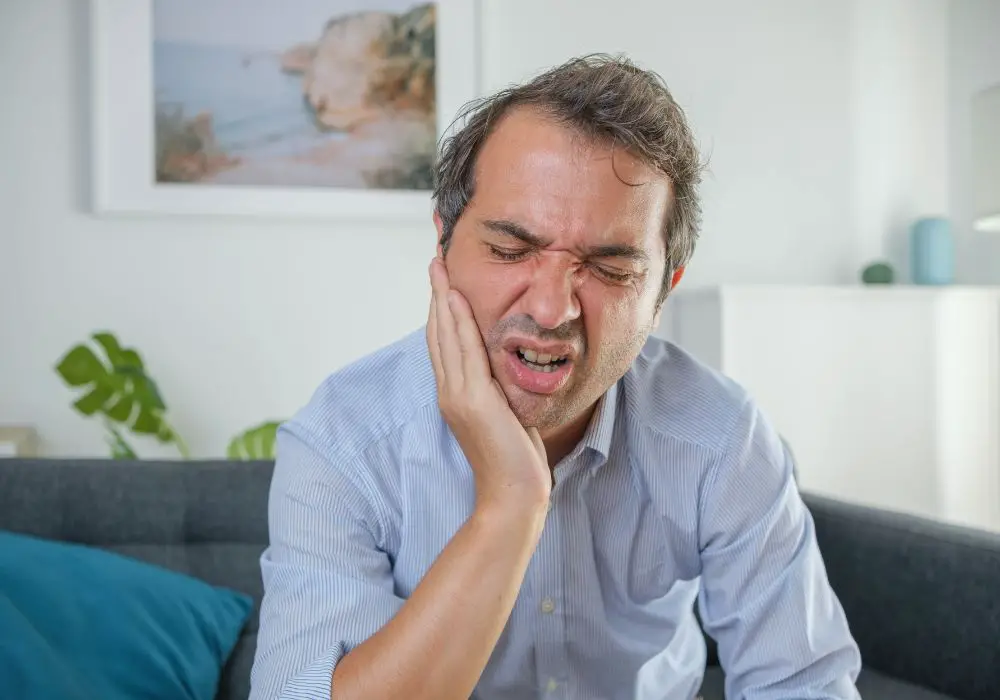
If you’re experiencing tooth and ear pain on the same side, you may be wondering if there is a correlation between the two. The answer is yes, there is a correlation between tooth and ear pain, and it’s not uncommon for people to experience both pains at the same time.
Referred Pain
One possible explanation for tooth and ear pain on the same side is referred pain. Referred pain is pain that is felt in a different part of the body from where the actual problem is. In this case, the pain may originate from a dental issue, such as a cavity or infection, but it is felt in the ear instead of the tooth.
Common Conditions Causing Both Pains
There are several conditions that can cause both tooth and ear pain on the same side. Here are some of the most common:
- Temporomandibular Joint (TMJ) Disorder: TMJ disorder is a condition that affects the joint that connects the jawbone to the skull. It can cause pain in the jaw, ear, and temple area.
- Tooth Infection: An infection in the tooth can cause pain that radiates to the ear.
- Sinus Infection: A sinus infection can cause pain in the teeth and ears on the affected side.
- Eustachian Tube Dysfunction: The Eustachian tube connects the middle ear to the back of the throat. Dysfunction of this tube can cause pain in the ear and jaw.
If you’re experiencing tooth and ear pain on the same side, it’s important to see a dentist or doctor to determine the underlying cause. Treatment will depend on the specific condition causing the pain.
Diagnosis and Treatment
Diagnosis Process
If you are experiencing toothache and ear pain on the same side of your face, it is important to seek medical attention. A dentist or doctor can help determine the underlying cause of your pain through a variety of diagnostic processes.
During the diagnosis process, a dentist or doctor may ask you questions about your symptoms, examine your teeth and gums, and take X-rays or other imaging tests to assess the condition of your teeth, jaw, and ears. They may also perform tests to check your hearing and balance, as well as your ability to move your jaw and open your mouth.
Treatment Options
The treatment for toothache and ear pain on the same side will depend on the underlying cause of your symptoms. Some common treatment options include:
- Antibiotics: If your pain is caused by an infection, your dentist or doctor may prescribe antibiotics to help clear up the infection and alleviate your symptoms.
- Root canal therapy: If your toothache is caused by an infection in the root of your tooth, your dentist may recommend a root canal to remove the infected tissue and prevent the infection from spreading.
- Tooth extraction: If your tooth is severely damaged or decayed, your dentist may recommend removing the tooth to alleviate your pain and prevent further complications.
- Pain medications: Over-the-counter pain medications like ibuprofen or acetaminophen can help relieve mild to moderate tooth and ear pain.
- Warm compresses: Applying a warm compress to the affected area can help alleviate pain and reduce inflammation.
In some cases, your dentist or doctor may recommend lifestyle changes or other treatments to help manage your symptoms. For example, if your pain is caused by teeth grinding or clenching, they may recommend a mouthguard to wear at night. If your pain is caused by temporomandibular joint (TMJ) disorder, they may recommend physical therapy or other treatments to help alleviate your symptoms.
Overall, it is important to seek medical attention if you are experiencing toothache and ear pain on the same side of your face. With the right diagnosis and treatment, you can alleviate your symptoms and prevent further complications.
Prevention Strategies

Preventing tooth and ear pain on the same side can be challenging, but there are some strategies you can adopt to reduce your risk of experiencing this type of pain. Here are a few tips:
- Practice Good Oral Hygiene: Brushing your teeth twice a day and flossing once a day can help prevent tooth decay and gum disease, which can lead to toothaches. Regular dental check-ups can also help identify and treat dental problems before they become more serious.
- Avoid Grinding Your Teeth: Grinding your teeth can cause toothaches and jaw pain, which can also lead to earaches. If you grind your teeth, talk to your dentist about getting a mouthguard to wear at night.
- Manage Your Stress: Stress can cause tension in your jaw muscles, which can lead to tooth and ear pain. Practice relaxation techniques, such as deep breathing, meditation, or yoga, to help manage your stress.
- Protect Your Ears: Exposure to loud noises can damage your hearing and cause ear pain. Wear earplugs or noise-cancelling headphones when you’re in loud environments, such as concerts or construction sites.
- Maintain a Healthy Diet: Eating a balanced diet that is rich in vitamins and minerals can help keep your teeth and gums healthy. Avoid sugary and acidic foods, which can erode your tooth enamel and cause tooth decay.
By following these prevention strategies, you can reduce your risk of experiencing tooth and ear pain on the same side. If you do experience this type of pain, it’s important to see a dentist or doctor as soon as possible to identify and treat the underlying cause.
Frequently Asked Questions
Can a cracked tooth cause ear and jaw pain?
Yes, a cracked tooth can cause ear and jaw pain. When a tooth is cracked, it can expose the nerves and cause pain to radiate throughout the surrounding areas, including the ears and jaw.
How do I know if my tooth is causing my ear pain?
If you are experiencing ear pain and suspect it may be related to a tooth issue, pay attention to the location of the pain. If the pain is on the same side as the affected tooth, it may be a sign that the tooth is causing the ear pain. Additionally, if you experience tooth pain when you chew or bite down, this may also be a sign that your tooth is causing ear pain.
Can toothache cause earache and sore throat?
Yes, toothache can cause earache and sore throat. The teeth, ears, and throat are all connected through nerves and can affect each other. If you are experiencing tooth pain and also have earache or sore throat, it is possible that the pain is related.
Why does my left ear hurt along with my teeth?
If your left ear hurts along with your teeth, it may be a sign of an issue with your left jaw or left side of your mouth. The nerves in this area are closely connected, so pain in one area can easily spread to the other.
Why does my right ear and tooth hurt?
If your right ear and tooth hurt, it may be a sign of an issue with your right jaw or right side of your mouth. The nerves in this area are closely connected, so pain in one area can easily spread to the other.
Can you have a toothache and earache on one side?
Yes, it is possible to have a toothache and earache on one side. As mentioned before, the teeth and ears are connected through nerves and can affect each other. If you are experiencing pain on one side of your face in both your tooth and ear, it is possible that the pain is related.


